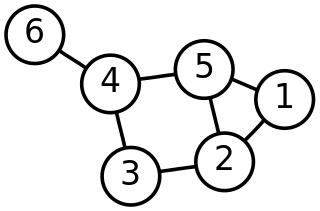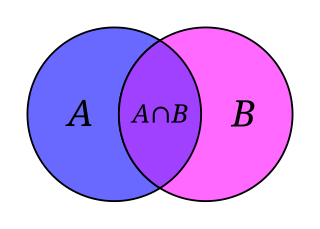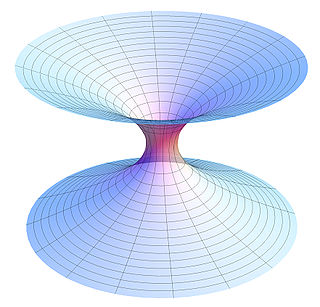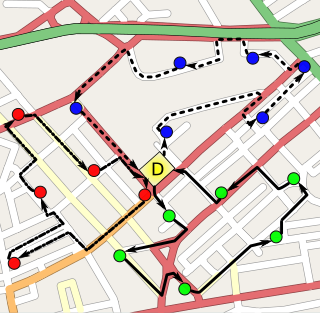See also
| This disambiguation page lists mathematics articles associated with the same title. If an internal link led you here, you may wish to change the link to point directly to the intended article. |
The term mathematical theory may refer to:
In mathematical logic, a theory is a set of sentences in a formal language. Usually a deductive system is understood from context. An element of a theory is then called a theorem of the theory. In deductive systems there is usually a subset called "the set of axioms" of the theory and the deductive system is called an "axiomatic system". Clearly, every axiom is also a theorem. A first-order theory is a set of first-order sentences (theorems) recursively obtained by the inference rules of the system applied to the set of axioms.
A mathematical theory is a mathematical model that is based on axioms. A theory can be a body of knowledge, and so in this sense a "mathematical theory" refers to an area of mathematical research. This is related to, but distinct from, the idea of mathematical models. Branches of mathematics like group theory and number theory are examples of this.
| This disambiguation page lists mathematics articles associated with the same title. If an internal link led you here, you may wish to change the link to point directly to the intended article. |
An axiom or postulate is a statement that is taken to be true, to serve as a premise or starting point for further reasoning and arguments. The word comes from the Greek axíōma (ἀξίωμα) 'that which is thought worthy or fit' or 'that which commends itself as evident.'
Combinatorics is an area of mathematics primarily concerned with counting, both as a means and an end in obtaining results, and certain properties of finite structures. It is closely related to many other areas of mathematics and has many applications ranging from logic to statistical physics, from evolutionary biology to computer science, etc.

Category theory formalizes mathematical structure and its concepts in terms of a labeled directed graph called a category, whose nodes are called objects, and whose labelled directed edges are called arrows. A category has two basic properties: the ability to compose the arrows associatively, and the existence of an identity arrow for each object. The language of category theory has been used to formalize concepts of other high-level abstractions such as sets, rings, and groups. Informally, category theory is a general theory of functions.

Discrete mathematics is the study of mathematical structures that are fundamentally discrete rather than continuous. In contrast to real numbers that have the property of varying "smoothly", the objects studied in discrete mathematics – such as integers, graphs, and statements in logic – do not vary smoothly in this way, but have distinct, separated values. Discrete mathematics therefore excludes topics in "continuous mathematics" such as calculus or Euclidean geometry. Discrete objects can often be enumerated by integers. More formally, discrete mathematics has been characterized as the branch of mathematics dealing with countable sets. However, there is no exact definition of the term "discrete mathematics." Indeed, discrete mathematics is described less by what is included than by what is excluded: continuously varying quantities and related notions.

Mathematics includes the study of such topics as quantity, structure, space, and change.
Mathematical logic is a subfield of mathematics exploring the applications of formal logic to mathematics. It bears close connections to metamathematics, the foundations of mathematics, and theoretical computer science. The unifying themes in mathematical logic include the study of the expressive power of formal systems and the deductive power of formal proof systems.

Physics is the natural science that studies matter, its motion, and behavior through space and time, and that studies the related entities of energy and force. Physics is one of the most fundamental scientific disciplines, and its main goal is to understand how the universe behaves.

Set theory is a branch of mathematical logic that studies sets, which informally are collections of objects. Although any type of object can be collected into a set, set theory is applied most often to objects that are relevant to mathematics. The language of set theory can be used to define nearly all mathematical objects.

In physics, string theory is a theoretical framework in which the point-like particles of particle physics are replaced by one-dimensional objects called strings. It describes how these strings propagate through space and interact with each other. On distance scales larger than the string scale, a string looks just like an ordinary particle, with its mass, charge, and other properties determined by the vibrational state of the string. In string theory, one of the many vibrational states of the string corresponds to the graviton, a quantum mechanical particle that carries gravitational force. Thus string theory is a theory of quantum gravity.

Edward Witten is an American theoretical physicist and professor of mathematical physics at the Institute for Advanced Study in Princeton, New Jersey.
Foundations of mathematics is the study of the philosophical and logical and/or algorithmic basis of mathematics, or, in a broader sense, the mathematical investigation of what underlies the philosophical theories concerning the nature of mathematics. In this latter sense, the distinction between foundations of mathematics and philosophy of mathematics turns out to be quite vague. Foundations of mathematics can be conceived as the study of the basic mathematical concepts and how they form hierarchies of more complex structures and concepts, especially the fundamentally important structures that form the language of mathematics also called metamathematical concepts, with an eye to the philosophical aspects and the unity of mathematics. The search for foundations of mathematics is a central question of the philosophy of mathematics; the abstract nature of mathematical objects presents special philosophical challenges.

Mathematical physics refers to the development of mathematical methods for application to problems in physics. The Journal of Mathematical Physics defines the field as "the application of mathematics to problems in physics and the development of mathematical methods suitable for such applications and for the formulation of physical theories". It is a branch of applied mathematics, but deals with physical problems.
Pure mathematics is the study of mathematical concepts independently of any application outside mathematics. These concepts may originate in real-world concerns, and the results obtained may later turn out to be useful for practical applications, but the pure mathematicians are not primarily motivated by such applications. Instead, the appeal is attributed to the intellectual challenge and esthetic beauty of working out the logical consequences of basic principles.
This article itemizes the various lists of mathematics topics. Some of these lists link to hundreds of articles; some link only to a few. The template to the right includes links to alphabetical lists of all mathematical articles. This article brings together the same content organized in a manner better suited for browsing.
Mathematics encompasses a growing variety and depth of subjects over history, and comprehension requires a system to categorize and organize the many subjects into more general areas of mathematics. A number of different classification schemes have arisen, and though they share some similarities, there are differences due in part to the different purposes they serve. In addition, as mathematics continues to be developed, these classification schemes must change as well to account for newly created areas or newly discovered links between different areas. Classification is made more difficult by some subjects, often the most active, which straddle the boundary between different areas.
Algebra is one of the broad parts of mathematics, together with number theory, geometry and analysis. In its most general form, algebra is the study of mathematical symbols and the rules for manipulating these symbols; it is a unifying thread of almost all of mathematics. It includes everything from elementary equation solving to the study of abstractions such as groups, rings, and fields. The more basic parts of algebra are called elementary algebra; the more abstract parts are called abstract algebra or modern algebra. Elementary algebra is generally considered to be essential for any study of mathematics, science, or engineering, as well as such applications as medicine and economics. Abstract algebra is a major area in advanced mathematics, studied primarily by professional mathematicians.

Theoretical physics is a branch of physics that employs mathematical models and abstractions of physical objects and systems to rationalize, explain and predict natural phenomena. This is in contrast to experimental physics, which uses experimental tools to probe these phenomena.

Applied mathematics is the application of mathematical methods by different fields such as science, engineering, business, computer science, and industry. Thus, applied mathematics is a combination of mathematical science and specialized knowledge. The term "applied mathematics" also describes the professional specialty in which mathematicians work on practical problems by formulating and studying mathematical models. In the past, practical applications have motivated the development of mathematical theories, which then became the subject of study in pure mathematics where abstract concepts are studied for their own sake. The activity of applied mathematics is thus intimately connected with research in pure mathematics.
Mathematics is a field of study that investigates topics including number, space, structure, and change. For more on the relationship between mathematics and science, refer to the article on science.

Logic is the systematic study of the form of valid inference, and the most general laws of truth. A valid inference is one where there is a specific relation of logical support between the assumptions of the inference and its conclusion. In ordinary discourse, inferences may be signified by words such as therefore, hence, ergo, and so on.